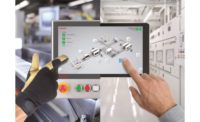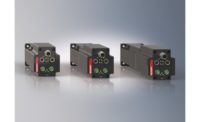Company: Beckhoff Automation
Website: www.beckhoffautomation.com
Technology Snapshot: Beckhoff Automation has announced the incorporation of comprehensive image processing capabilities into its PC-based control system with new TwinCAT Vision software. TwinCAT unites a comprehensive range of machine functionality—PLC, motion control, robotics, high-end measurement technology, IoT, HMI and now machine vision—all in an end-to-end engineering and control platform.
With this level of integration, TwinCAT Vision eliminates the need for separate vision solutions, often developed by third parties. The software opens up vast innovation potential in machine building, for instance, through consistent real-time synchronization with other automation tasks or support of advanced track-and-trace solutions.
Machine vision is rapidly becoming a key quality technology enabler for manufacturing machinery. This applies particularly to Industrie 4.0 concepts, quality optimization and track-and-trace applications. Now, TwinCAT Vision provides the required image processing capabilities in the form of PLC functionality on a universal, end-to-end software platform, complete with a specially developed library of image processing functions and function blocks that are called up directly from the TwinCAT PLC. The flexible runtime system in TwinCAT is capable of executing these functions and function blocks in real-time. Integration at this level simplifies engineering significantly, so that PLC programmers can now create machine vision applications themselves without support from outside experts.
GigE Vision compliant cameras of almost any kind are added easily, even in parallel, via standard camera interfaces and configured in TwinCAT Engineering. The cameras can also be calibrated directly, in the engineering environment or mid-process in the runtime system. With TwinCAT Vision, there is no need for specialized tools or programming languages when coding the image processing logic, because the machine vision applications are created in the PLC, using familiar PLC programming languages.
With stand-alone machine vision solutions, communication between image processing and control applications can be complex and difficult to manage. External factors, such as the operating system, may also have an impact on processing times and data transmission speeds. TwinCAT Vision not only avoids communication problems of this kind, it also allows the image processing and control components to communicate with one another directly. Because the image processing operates at the same real-time level as the PLC, response times are shorter and machines can run faster and more efficiently as a result.





